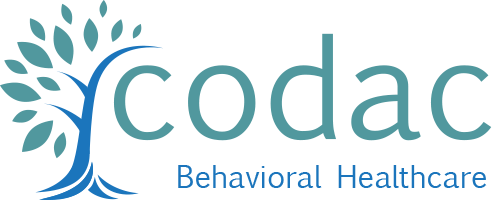A new study in Rhode Island is taking a novel approach to dealing with the opioid crisis that could eventually be replicated across the country. Through a $1.6 million grant awarded to Rhode Island Hospital from the National Institutes of Health, pharmacies will take a bigger role in offering addiction treatment services with the support of a cooperating and collaborating partnership of healthcare providers, including CODAC Behavioral Healthcare.
The three-year study aims to improve accessibility to Medication Assisted Treatment (MAT), which typically requires patients to meet with an approved physician before being placed on an evidence-based treatment plan. Through this trial, Rhode Island is the only state in the country that allows pharmacists to manage patients with buprenorphine and injectable naltrexone (Vivitrol).
“The unwavering resolve of government agencies, non-profits, and academic institutions in Rhode Island shows that we remain committed to preventing overdoses across the state,” said Linda Hurley, President/CEO of CODAC Behavioral Healthcare. “This trial not only has the potential to reduce the number of cases involving opioid-related overdoses, but it can help reinforce the message that addiction is a disease just like diabetes or cancer.”
Scalability is another important element of this study, according to Hurley. “Ultimately, we would want states and regions where there is limited access to evidence-based treatment for Opioid Use Disorder (OUD) to use the study’s findings to expand and enhance access to MAT services in areas where long distances can be a barrier to care,” Hurley said.
While Rhode Island has a robust and expansive group of OUD treatment providers, healthcare experts say the program could improve access to care in rural areas of the country. Researchers will closely examine the efficacy of this program to determine how it supports evidence-based treatment plans and treatment accessibility — components that are deemed critical to the continuation of comprehensive access to care.
For now, the program will enroll roughly 250 patients. Half of those patients will be placed under the care of a pharmacist who have undergone extensive training in addiction care. Following a thorough assessment, CODAC will issue patients their initial prescription. Some patients may become eligible for continued care under this program if their recovery plan is well-established and their physician agrees.
In prepared remarks, Traci Green, Ph.D., an adjunct associate professor of emergency medicine at Brown University and the study’s principle investigator, noted the importance of MAT in the recovery of patients. “Treatment with medications is a critical tool in the opioid crisis, but can only work if it is available and accessible in the community,” Dr. Green said.
Six pharmacies, managed by Genoa Healthcare, will be participating in the study. Pharmacists will keep doctors from CODAC updated on the progress of patients, and with the understanding that medication alone is generally not enough to treat this illness, will encourage patients to seek additional counseling services. More importantly, these specialized pharmacists would be allowed to use their objective observations to reduce a patient’s dosage amounts and frequency of visits. As patients gain more confidence with their pharmacist, they can begin to have discussions with them about their recovery goals, struggles, and recent successes. Patients who begin to struggle with this treatment plan would be referred to a CODAC Behavioral Healthcare location for additional support. Patients that begin to fall back on their treatment plan would be referred to CODAC Behavioral Healthcare, which has nine locations throughout the state.
CODAC’s involvement in this study is one of the many programs that it has supported in response to the ongoing opioid epidemic. The non-profit organization was praised nationally for its involvement in the Rhode Island Department of Corrections MAT Program, which has been attributed to reducing the overdose death rate in the state by 61 percent for those released after incarceration. Moreover, CODAC partnered with Brown University to expand that program to reach more individuals who, Hurley says, may have fallen through the cracks. Additionally, CODAC has also worked with the Family Service of Rhode Island to help children impacted by the opioid crisis.
Other collaborators in this multi-year study includes the University of Rhode Island College of Pharmacy, the Rhode Island Department of Health, and the Rhode Island Department of Behavioral Healthcare, Developmental Disabilities and Hospitals.
About CODAC Behavioral Healthcare
Founded in 1971, CODAC Behavioral Healthcare is Rhode Island’s oldest and largest provider of outpatient services for opioid use disorder, other substance use disorders, and concurrent behavioral health challenges. With nine locations across Rhode Island, CODAC is uniquely positioned to provide services when and where they are needed. For more information about CODAC, visit: www.codacinc.org
###


Recent Comments